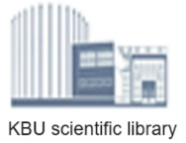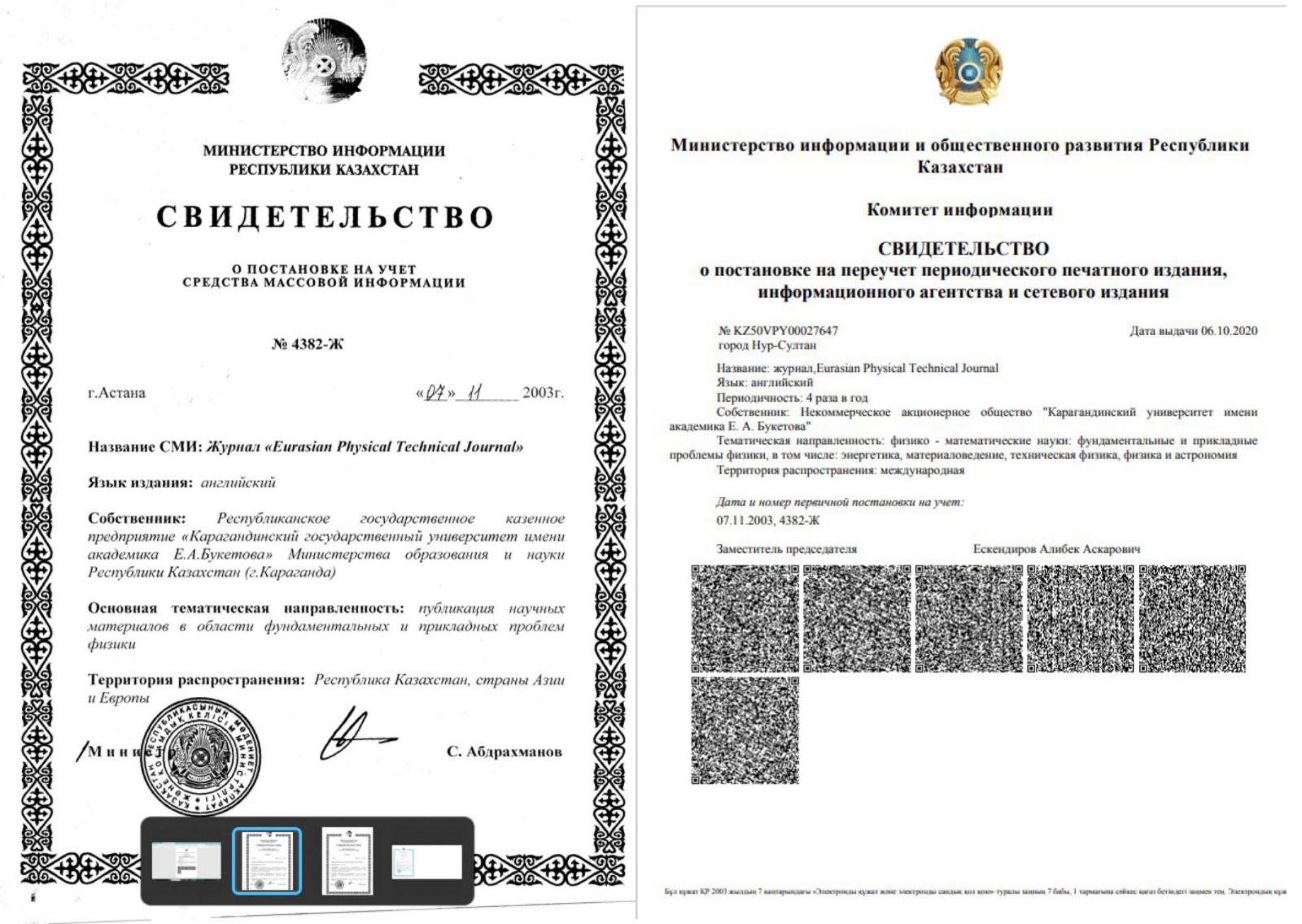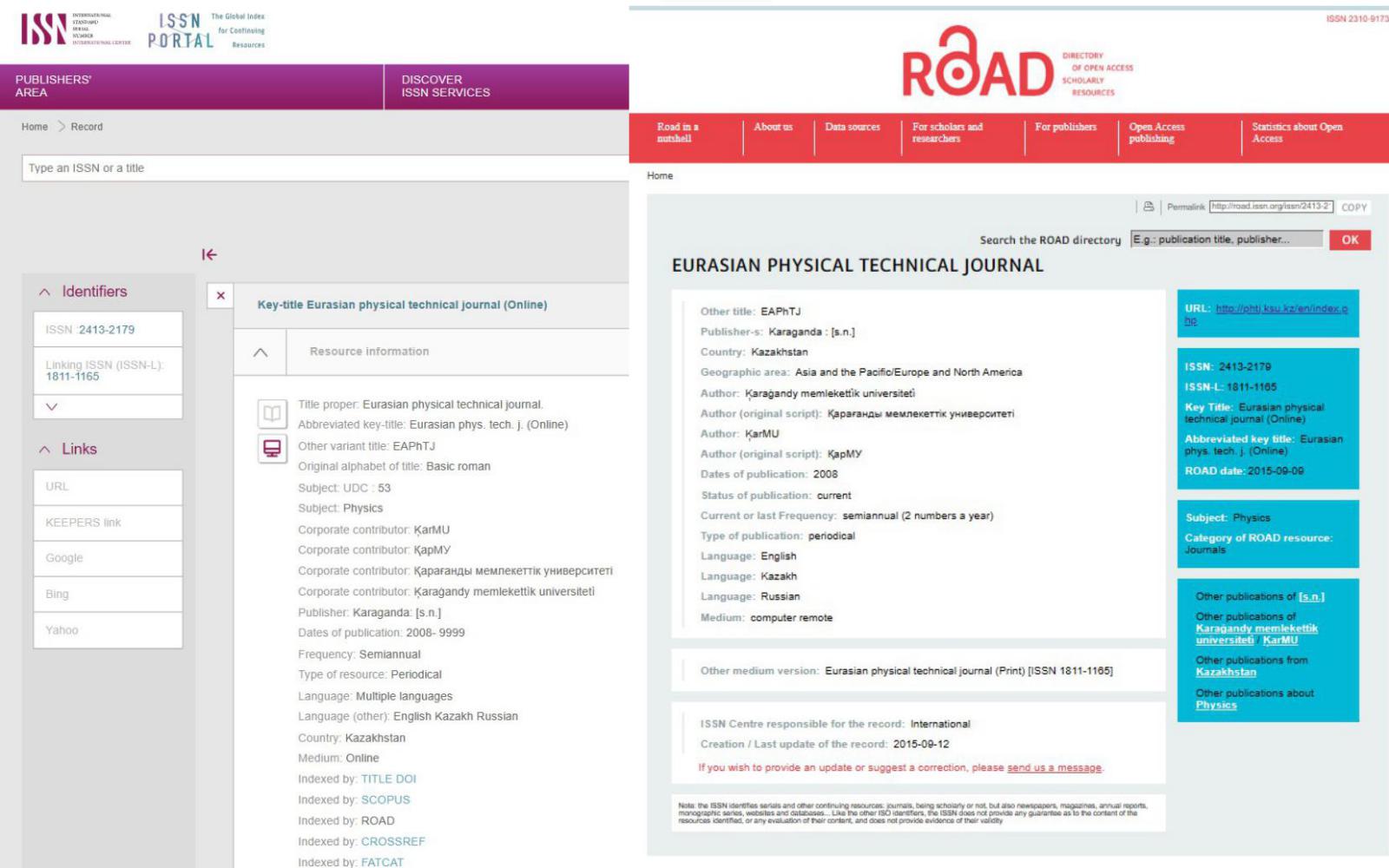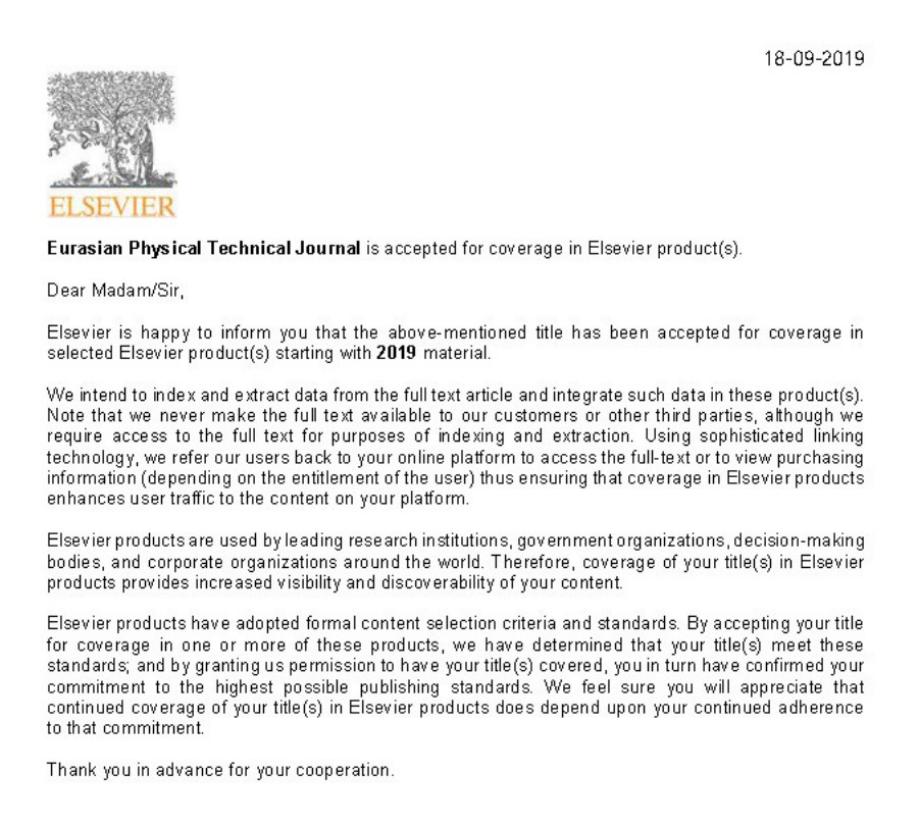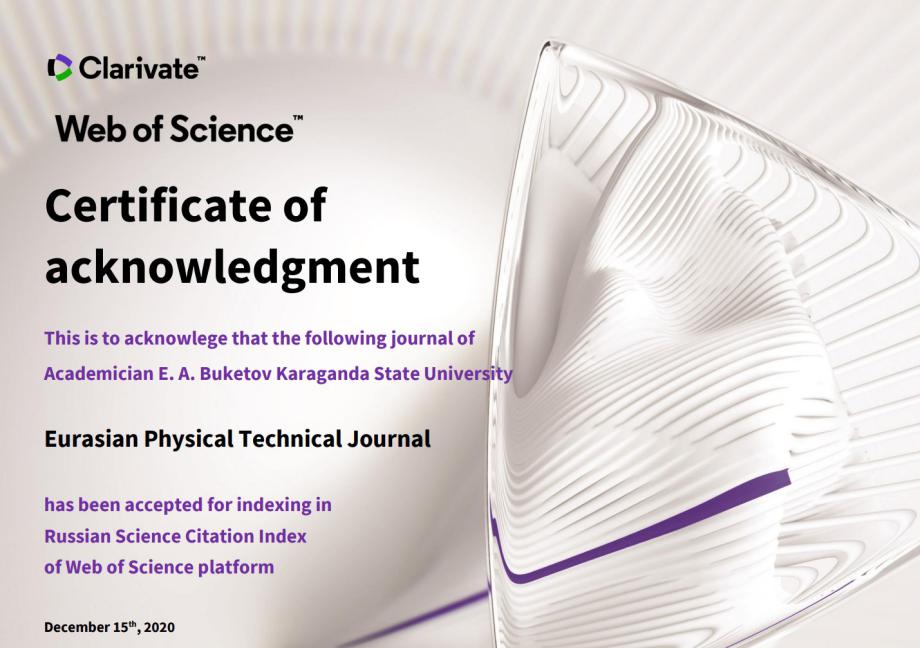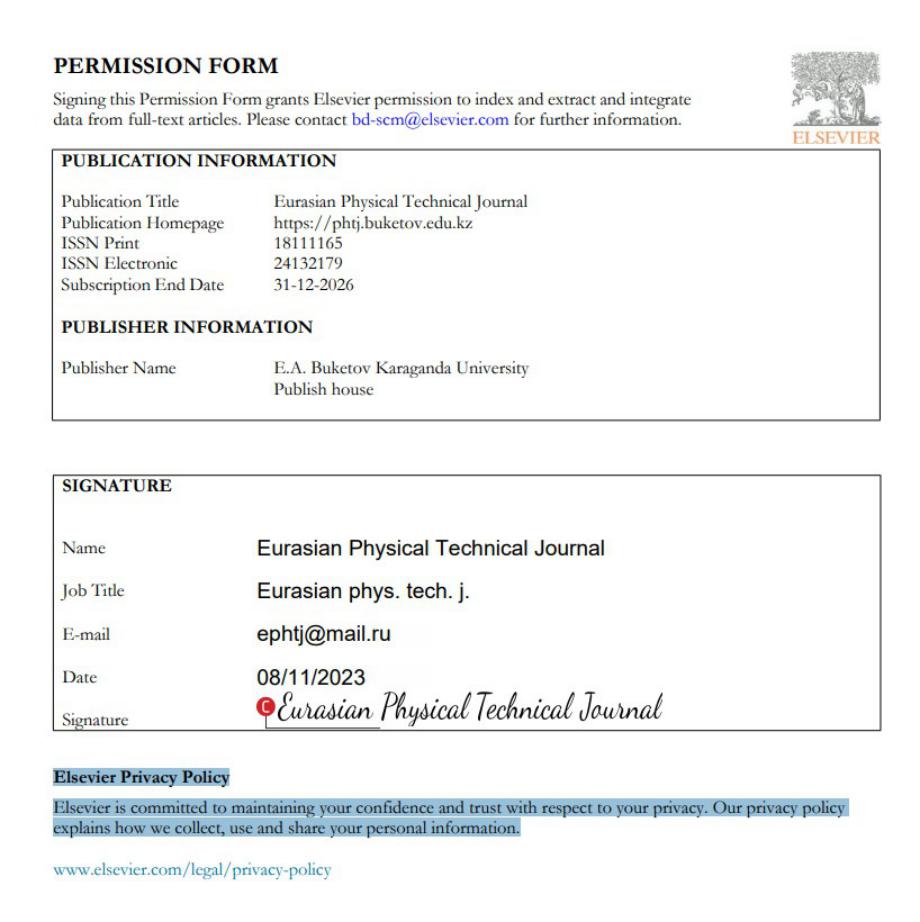A Dynamical System Approach to Language Bias Evolution on Complex Networks
DOI:
https://doi.org/10.31489/2025N3/120-126Keywords:
Nonlinear dynamics, complex systems, networksAbstract
We propose a dynamical systems model to study language competition and bias evolution in structured agent populations. Each agent is characterized by a continuous bias variable representing their linguistic preference, evolving under the combined influence of peer interactions, native language retention, and external prestige forces. The model incorporates a nonlinear damping mechanism that confines the agent's bias within a fixed range between negative one and one, and allows for heterogeneous susceptibility and retention parameters. We analyze the model in its linear regime and perform a stability analysis of the fixed points under both symmetric and asymmetric network topologies. Simulations on fully connected and small-world networks reveal diverse dynamical scenarios, including language death, bilingual persistence, and spontaneous population bifurcation into opposing linguistic groups. The results provide insight into the interplay of social structure, identity, and external influence in shaping language dynamics.
References
Abrams D.M.,Strogatz S.H. (2003) Modelling the dynamics of language death. Nature, 424, 900. https://doi.org/10.1038/424900a DOI: https://doi.org/10.1038/424900a
Castelló X., Eguíluz V.M., Miguel M.S. (2006) Ordering dynamics with two non-excluding options: Bilingualism in language competition. New Journal of Physics, 8, 308. https://doi:10.1088/1367-2630/8/12/308 DOI: https://doi.org/10.1088/1367-2630/8/12/308
Patriarca M., Leppänen T. (2004) Modeling language competition. Physica A, 338, 296. https://doi.org/10.1016/j.physa.2004.02.056 DOI: https://doi.org/10.1016/j.physa.2004.02.056
Kandler A., Steele J. (2008) Ecological models of language competition. Biological Theory, 3, 164. https://doi.org/10.1162/biot.2008.3.2.164 DOI: https://doi.org/10.1162/biot.2008.3.2.164
Mira J., Paredes A. (2005) Interlinguistic similarity and language death dynamics. Europhysics Letters, 69, 6. https://doi.org/10.1209/EPL/I2004-10438-4 DOI: https://doi.org/10.1209/epl/i2004-10438-4
Fagioli S., Radici E. (2021) Opinion formation systems via deterministic particles approximation. Kinetic and Related Models, 14, 1. https://doi:10.3934/krm.2020048 DOI: https://doi.org/10.3934/krm.2020048
Sperlich S., Uriarte J. (2018) The Economics of Minority Language Use: Theory and Empirical Evidence for a Language Game Model. SSRN Electronic Journal, 1. https://doi:10.2139/ssrn.3445345 DOI: https://doi.org/10.2139/ssrn.3445345
Marchetti G., Patriarca M., Heinsalu E. (2020) A bird’s-eye view of naming game dynamics: From trait competition to Bayesian inference. Chaos, 30, 6, 063119. https://doi.org/10.1063/5.0009569 DOI: https://doi.org/10.1063/5.0009569
Marchetti G., Patriarca M., Heinsalu E. (2020) A Bayesian Approach to the Naming Game Model. Front. Phys., 8, 00010. https://doi:10.3389/fphy.2020.00010 DOI: https://doi.org/10.3389/fphy.2020.00010
Marchetti G., Patriarca M., Heinsalu E. (2021) The role of bilinguals in the Bayesian naming game. Physica D, 428, 133062. https://doi.org/10.1016/j.physd.2021.133062 DOI: https://doi.org/10.1016/j.physd.2021.133062
Mudd K., De Vos, C., De Boer, B. (2020) An agent-based model of sign language persistence informed by real-world data. Language Dynamics and Change, 10(2), 158-187. https://doi.org/10.1163/22105832-bja10010 DOI: https://doi.org/10.1163/22105832-bja10010
Charalambous C., Sanchez D., Toral R. (2023) Language dynamics within adaptive networks: an agent-based approach of nodes and links coevolution. Frontiers in Complex Systems, 1. https://doi.org/10.3389/fcpxs.2023.1304448 DOI: https://doi.org/10.3389/fcpxs.2023.1304448
Gao Y, Liu W (2023) Measures to sustain endangered languages: A bilingual competition model with sliding mode control. PLoS ONE, 18(6): e0287850. https://doi.org/10.1371/journal.pone.0287850 DOI: https://doi.org/10.1371/journal.pone.0287850
Boissonneault M., Vogt P. (2021) A systematic and interdisciplinary review of mathematical models of language competition. Humanit Soc Sci Commu, 8, 21. https://doi.org/10.1057/s41599-020-00683-9 DOI: https://doi.org/10.1057/s41599-020-00683-9
Soriano-Panos D., Lotero L., Arenas A., Gómez-Gardeñes J. (2018) Spreading Processes in Multiplex Metapopulations Containing Different Mobility Networks. Phys. Rev. X, 8, 031039. https://doi.org/10.1103/ PhysRevX.8.031039 DOI: https://doi.org/10.1103/PhysRevX.8.031039
Zhanabaev Z.Z., Kozhagulov Y.T., Zhexebay D.M. (2016) FPGA implementations of scale-invariant models of neural networks. Turkish Journal of Electrical Engineering and Computer Sciences, 24, 6. doi:10.3906/elk-1504-204 DOI: https://doi.org/10.3906/elk-1504-204
Ibraimov M., Tynymbayev S., Skabylov A., Kozhagulov Y., Zhexebay D. (2022) Development and design of an FPGA-based encoder for NPN. Cogent Engineering, 9, 2008847. https://doi.org/10.1080/23311916.2021.2008847 DOI: https://doi.org/10.1080/23311916.2021.2008847
Ussipov N., Akhtanov S., Zhanabaev Z., Turlykozhayeva D., Karibayev B., Namazbayev T., Almen D., Akhmetali A., Tang X. (2024) Automatic modulation classification for MIMO system based on the mutual information feature extraction. IEEE Access, 12, 68463 – 68470. doi:10.1109/access.2024.3400448 DOI: https://doi.org/10.1109/ACCESS.2024.3400448
Turlykozhayeva D.A., Akhtanov S.N., Baigaliyeva A.N., Temesheva S.A., Zhexebay D.M., Zaidyn M., Ussipov N.M., Skabylov A.A. (2024) Evaluating routing algorithms across different wireless mesh network topologies using NS-3 simulator. Eurasian Physical Technical Journal, 21, 2(48). https://doi.org/10.31489/2024No2/70-82 DOI: https://doi.org/10.31489/2024No2/70-82
Turlykozhayeva D., Temesheva S., Ussipov N., Bolysbay A., Akhmetali A., Akhtanov S., Tang X. (2024) Experimental performance comparison of proactive routing protocols in wireless mesh network using Raspberry Pi 4. Telecom, 5(4), 1008-1020. https://doi.org/10.3390/telecom5040051. DOI: https://doi.org/10.3390/telecom5040051
Ibraimov M.K., Kozhagulov Y.T., Zhexebay D.M., Sarmanbetov S.A. (2023) Implementation of functional block radio unit based on system-on-chip. Eurasian Physical Technical Journal, 20(4), 74–80. https://doi.org/10.31489/2023No4/74-80 DOI: https://doi.org/10.31489/2023No4/74-80
Watts D., Strogatz S. (1998) Collective dynamics of ‘small-world’ networks. Nature. 393, 440–442. https://doi.org/10.1038/30918 DOI: https://doi.org/10.1038/30918
Downloads
Published online
How to Cite
Issue
Section
License

This work is licensed under a Creative Commons Attribution-NonCommercial-NoDerivatives 4.0 International License.


